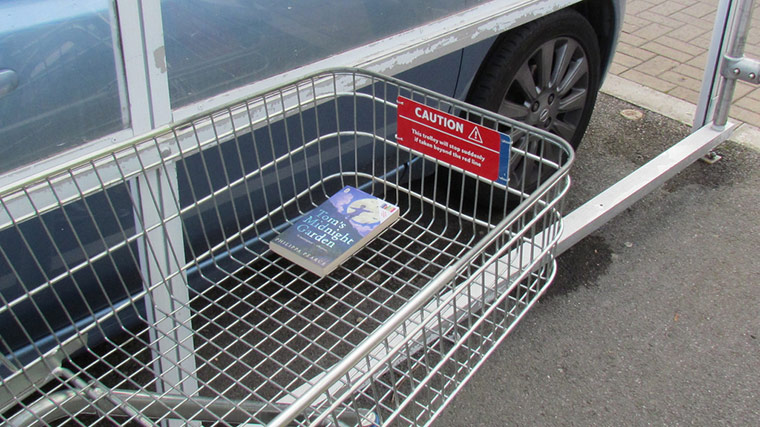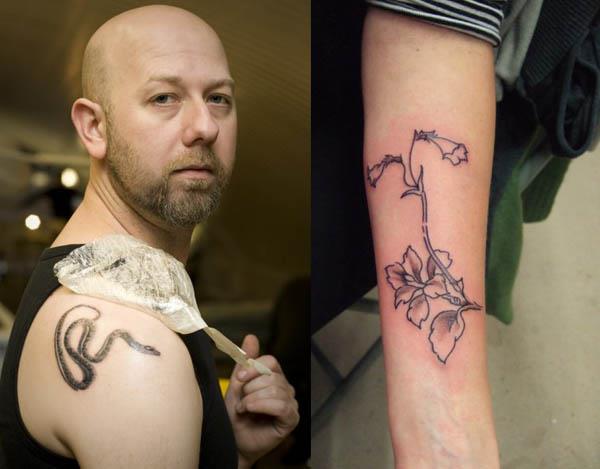User:Eleanorg/Journal 1.3: Difference between revisions
No edit summary |
No edit summary |
||
| Line 5: | Line 5: | ||
WHAT IS IT? | WHAT IS IT? | ||
BodyBook is a living, distributed archive of unpublishable | BodyBook is a living, distributed archive of unpublishable works - created and maintained by you. You are invited to: | ||
A. Send in an image, text or other file that has been censored. For example: a photo taken down from your Facebook page by admins. | A. Send in an image, text or other file that has been censored. For example: a photo taken down from your Facebook page by admins. | ||
Revision as of 14:33, 24 April 2012
22 April
Construction of the archive
Proposal for BodyBook
WHAT IS IT? BodyBook is a living, distributed archive of unpublishable works - created and maintained by you. You are invited to:
A. Send in an image, text or other file that has been censored. For example: a photo taken down from your Facebook page by admins. and/or: B: Volunteer to host somebody else's image or file.
HOW DOES IT WORK? All files sent in will be temporarily stored by Radical X while they await adoption by a host. Each file will have a short description, which potential hosts will use to decide whether or not they wish to host it. Until an image is adopted by a host, only this description will be visible.
When a host has found an image they want to host, they will send in a photo of themselves holding the machine they propose to host it on, along with an email address. The image is then sent to them. (Not sure about the following part: They will then make it available online: either hosting it on their server, or seeding it on a file-sharing service such as Pirate Bay.)
Radical X will act as an index to this distributed archive, with links to all of the files that have been hosted. Next to the description of each file will be the host's photo of the computer on which that file is stored.
Question: do the images actually need to be online? Isn't it enough that they are stored on ppl's computers?
And actually, it's more interesting if it's offline because then you have to email the host to get a copy of the image.
Though I can't control whether ppl put it online I guess. Though having the mystery would be good.
Q2: Should I limit invitations to work that's ALREADY been censored? Or could I invite new work that falls foul of some kind of guidelines - eg, facebook? A kind of Oulipo constraint. Fits more in with the factory theme as well. And it would help to generate more content; give ppl a motivation to participate.
I like the idea of encouraging conversations between participants by maintaining the mystery of what the files actually are. Creating a kind of social network. Should I actually use Diaspora or something for this, rather than Radical X being the central node? But don't want ppl to have to get accounts.
20 April
Gathering relevant projects. Question: do I want to facilitate a one-off, or design a protocol?
{{#ev:vimeo|38786165}}
http://www.v2.nl/events/dead-drops-masterclass/leadImage_preview
 Guardian book swap. Books left out in the open for people to find and re-circulate.
Guardian book swap. Books left out in the open for people to find and re-circulate.
 http://www.deadswap.net/
How is what I'm doing different from these 'offline file sharing' projects? Based more on holding and less on circulation. More stationary and personal. Asking for individual commitment rather than finding a solution for networking.
http://www.deadswap.net/
How is what I'm doing different from these 'offline file sharing' projects? Based more on holding and less on circulation. More stationary and personal. Asking for individual commitment rather than finding a solution for networking.
Projects based on the idea of 'adoption'?

14 April
So here we are at 1.3. Too many ideas for projects and not enough time.
In prototyping I'll be developing the 'adopt a pixel' project and hope to have it actually working by the end of term, with a database.
Now I have to think about Radical X and where I want to take it. Came up with a rough proposal for a project to do this Trimester, on hosting - the distributed, physical archive of censored works. Realised that if I go with this, there is a clear theme developing in Radical X. All projects will have explored the question of solidarity vs consent; how people with conflicting interests accommodate one another.
So the proposal I wrote was this:
Proposal: BodyBook will facilitate the creation of a distributed archive of images censored from Facebook because of their 'bodily' content (nudity, breastfeeding etc). Participants will be invited to contribute images that they have had removed from their pages by Facebook admins, and the BodyBook website will match them with other participants who are willing to "host" the image for them. Participants will be encouraged to interpret "hosting" in a broad sense: from hosting the image literally on their own server, to physically carrying it with them - provided that the host have bodily guardianship of their chosen image. The BodyBook website will provide an index of this physical archive.
And that leaves me with a list of questions that need answering:
- Why Facebook specifically, and could attention be drawn to the problems of censorship/hosting by widening the net somewhat?
- Do hosts get to see the images they're adopting, or is it a surprise/ blind promise?
- How to make it interesting/rewarding for participants? How to invite their creative input - designing the storage devices; making images specially for it (in which case need to adjust original specs for images)?
Actually funnily enough, I just took a pause to download some music and had to move to yet another pirate bay mirror, as each one seems to get blocked. I find this whole process fascinating - how the 'taken down' page then links to alternate mirrors. How could I make this Rad X project relevant to this more scary form of censorship, instead of just highlighting the obvious fact that FB doesn't like breasts? Is it even relevant to sexuality and if so, how? Or does it fall outside the scope of Rad X? Is it an entirely separate project?
Thinking about physical location. I started off last trimester thinking about actual servers and how they are vulnerable to the 'laws of the land'. But there is something very bodiless and conceptual about all these pirate bay sites and how the same content is served up in a slightly different wrapping with a different URL each time; one gets blocked, and you move to the next one.
a small idea
So we're doing factories right, ie working processes, ie methods. And the most relevant bit for me is I think the question of what it means to facilitate a project - are you just the new boss?. But anyway I had the idea to combine the factory project with the hosting project. So, one the one hand you have 'producers' who make some kind of illicit content. And on the other, 'hosts' who agree to take care of it. And somehow make the argument that 'radical' porn isn't worthy of the name if it colludes with the censorship that's going on now - like Kink.com doing DMCA takedown notices. Not that they ever claimed to be radical.
so continuing in the vein of Open Sauce where the basic idea being advanced is - don't start from scratch; we exist in a world saturated with pornographic imagery and what is interesting is the way that imagery is privately appropriated and made use of by those it isn't intended for.
but how this fits in with censorship and hosting i don't know. Maybe keep it separate. And then what of the factory?
later
Just been reading about http://www.dontmakemesteal.com/en/
I'm not down with the politics but I'm surprised something like this hasn't come along sooner. Sign of the times.
So what do I do next? Get a tutorial and unload my brain. Make notes on that Gondry text - thinking about the role of the project facilitator. Chat to Florian about how to fit the factory in with other project ideas on hosting.
